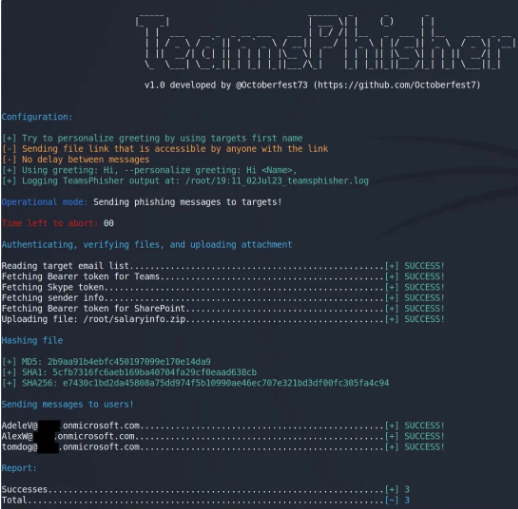Home >Technology peripherals >It Industry >Security flaw in Microsoft Teams, malware spreads via files
Security flaw in Microsoft Teams, malware spreads via files
- PHPzforward
- 2023-07-21 10:13:09782browse
News on July 6, recently broke the news about Microsoft A security flaw in Teams that allows attackers to bypass file sending restrictions and deliver malware to users.
According to reports from the U.S. Navy security team, they used previously exposed Microsoft Teams application vulnerability, a tool called TeamsPhisher was written in Python, which can automate malware distribution operations.
According to the editor’s understanding, the main principle of this vulnerability is Microsoft Teams relies on client-side protection mechanisms, and an attacker can deceive this protection system by modifying the ID in the POST request.

TeamsPhisher tool works by getting the attachment, message and list of target Teams users, then uploading the attachment to the sender's SharePoint and sending a message to each target with SharePoint attachment linked messages.
Security vulnerabilities and issues are challenges that any software or application can face. Once a security vulnerability is discovered, manufacturers usually take quick action to fix the vulnerability and release corresponding security updates or patches. If you are Microsoft Teams users, please make sure you keep your app up to date and promptly install any available security updates.
If you find any vulnerabilities or security issues, please report them to Microsoft or the relevant security team in time so that they can take measures to solve the problem. Ensuring that individuals and organizations’ data are protected is always critical.
The above is the detailed content of Security flaw in Microsoft Teams, malware spreads via files. For more information, please follow other related articles on the PHP Chinese website!
Related articles
See more- Meng Wanzhou talks about taking office as rotating chairman: Huawei is a collective leadership, not an individual succession
- Hydrogen production and separator development trends under the global hydrogen energy arms race
- Counterpoint Research: 2022 is a milestone year for the global eSIM ecosystem, with more than 260 operators supporting eSIM
- Google sued by publishers in UK for £3.4 billion
- Making mobile phones like making cars: Meizu has changed! Finally taking off?

